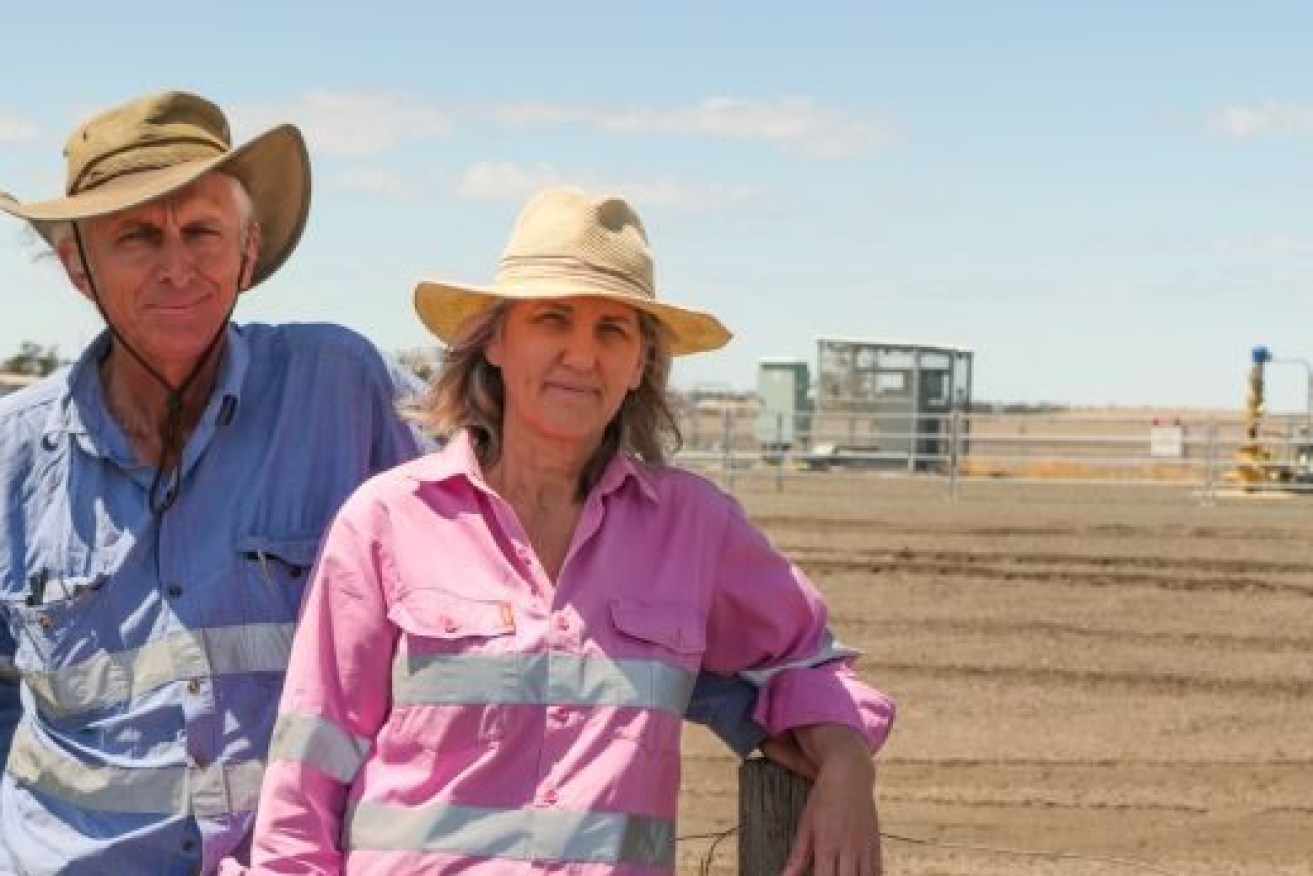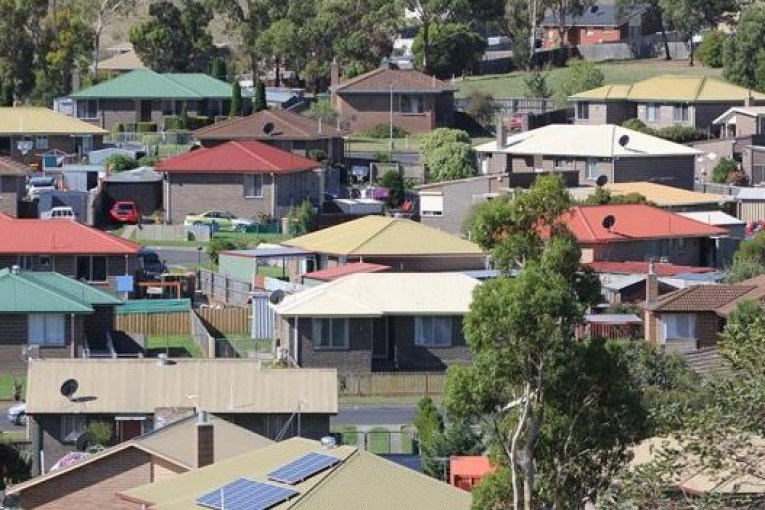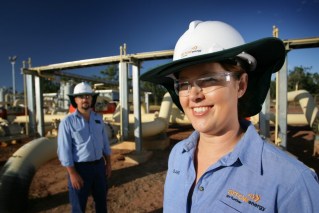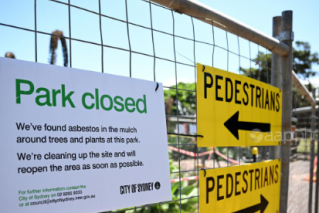On shaky ground: 10 years on, fight over CSG, water and farmland ramping up
More than a decade after the coal seam gas industry got the green light for massive expansion, farmers and communities are still fighting what has claimed to be neglect, long-term disruption and inequity and the potential for irrevocable land damage.


Zena and Gary Ronnfeldt have been fighting CSG companies Photo: ABC
The claims follow a report from the Gasfield Commission last week which highlighted the major problems of land subsidence faced by farmers on the high-quality farming district known as the Condamine Alluvium, which supports high-density cropping.
The industry has always battled opposition because it extracts highly prized groundwater as part of its operations and because it often accesses farmland for exploration and development, but since the industry expanded into exporting through the LNG projects near Gladstone that fight has intensified.
A report by the School of Agriculture and Food Sustainability at the University of Queensland has highlighted a continued war between farmers and industry over water and an uphill battle for justice.
That report has been rejected by the industry which claimed it was a one-sided view based largely on anecdotes and unproven allegations.
One of the industry’s harshest critics is Zena Ronnfeldt whose property has been impacted by subsidence and who claimed that farmers were being treated like modern slaves.
“We have enough to deal with in trying to manage at our own cost the subsidence damage to our farms while still having no clear pathway to compensation,” she said.
The UQ report said the major community concern was the disparity of water extraction rights between the landholders who are constrained by statute and the CSG companies who enjoy practically unlimited rights to extract,” the report said.
“The prevailing self-regulation, lack of baseline assessment and inadequate monitoring of the mining processes are abrogations of government responsibility and the precautionary principle.”
The report said there was little time to protect land and the natural systems that underpin agriculture from “potentially irrevocable damage”.
“At the heart of this paper is a twin concern: first, that there is a glaring disconnect between what is happening on the ground and the aspirations of a statutory framework that assumes any adverse effects are being satisfactorily managed by conditions and, second, that there is no adequately funded body sufficiently empowered and independent of commercial or political influence to confirm the validity of the opposition to this industry expressed by numerous landholders.
“The power imbalance between industry and landholders and weak regulation of industry hinders efforts by the industry to obtain social licence.
“Governments have, to a large extent, neglected the region-wide and long-term effects of the mining.
“As the industry is still ramping up there is precious little time to protect agricultural land and the natural systems that underpin agriculture from potentially irrevocable damage.
“The industry has not been able to negotiate an inclusive social licence to operate among the farming community, although sentiments have moved marginally towards acceptance among the townspeople.
“Major disquiet about procedural justice, the imbalance of power between communities affected by the industry, inequitable distribution of risks, limited assessment and oversight of the industry’s activities by governments, the short term nature of the mining set against the long term disruption to communities and farming and neglect of regional implications and intergenerational equity.”
Gas industry representative group APPEA said the sector was one of the most regulated in the country and had a long history of co-existence and consultation.
Queensland director Keld Knudsen said gas companies operate in a tightly regulated framework and the Government recently announced further reforms to strengthen these relationships between energy projects and agriculture operators.
“The paper presents a one-sided view of the industry based largely on anecdotes and unproven allegations. There is no assessment of the benefits of hosting industry, including the $500 million-plus of land access payments, water for irrigation and infrastructure improvements,” he said.












